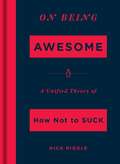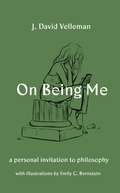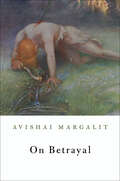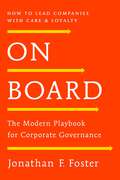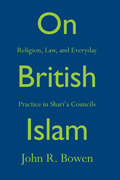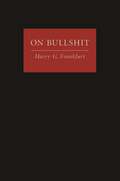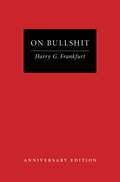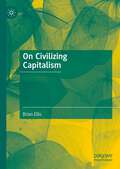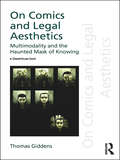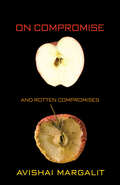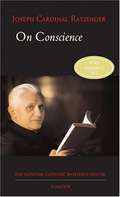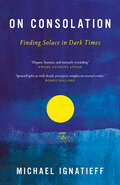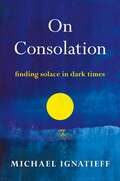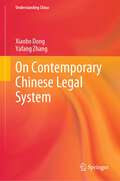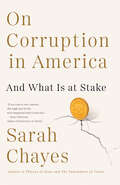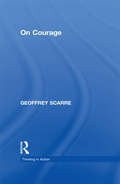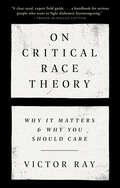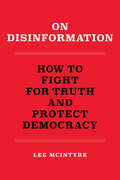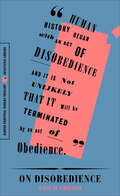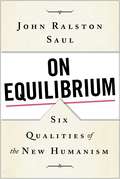- Table View
- List View
On Being Awesome: A Unified Theory of How Not to Suck
by Nick RiggleIn this lively treatise, pro-skater-turned-philosopher Nick Riggle presents a theory of awesomeness (and its opposite, suckiness) that’s both sharply illuminating and more timely than ever “Nick Riggle’s fun book is ‘awesome’ by its own definition. But don’t miss its profound ambition, which is to show how philosophy unearths the structure of ordinary language, defines the meaning of life in routine business, and poses the question of how best to live.” —Aaron James, author of Assholes: A Theory We all know people who are awesome and people who suck, but what do we really mean by these terms? Have you ever been chill or game? Do you rock or rule? If so, then you’re tapped into the ethics of awesomeness. Awesome people excel at creating social openings that encourage expressions of individuality and create community. And if you’re a cheapskate, self-promoter, killjoy, or douchebag, you’re the type of person who shuts social openings down. Put more simply: You suck. From street art to folk singers, Proust to the great etiquette writer Emily Post, President Obama to former Los Angeles Dodger Glenn Burke, Riggle draws on pop culture, politics, history, and sports to explore the origins of awesome, and delves into the nuances of what it means to suck and why it’s so important to strive for awesomeness. An accessible and entertaining lens for navigating the ethics of our time, On Being Awesome provides a new and inspiring framework for understanding ourselves and creating meaningful connections in our everyday lives.
On Being Here to Stay
by Michael AschWhat, other than numbers and power, justifies Canada's assertion of sovereignty and jurisdiction over the country's vast territory? Why should Canada's original inhabitants have to ask for rights to what was their land when non-Aboriginal people first arrived? The question lurks behind every court judgment on Indigenous rights, every demand that treaty obligations be fulfilled, and every land-claims negotiation.Addressing these questions has occupied anthropologist Michael Asch for nearly thirty years. In On Being Here to Stay, Asch retells the story of Canada with a focus on the relationship between First Nations and settlers.Asch proposes a way forward based on respecting the "spirit and intent" of treaties negotiated at the time of Confederation, through which, he argues, First Nations and settlers can establish an ethical way for both communities to be here to stay.
On Being Me: A Personal Invitation to Philosophy
by J. David VellemanA moral philosopher’s meditations on some of life’s most important questionsWe’ve all had to puzzle over such profound matters as birth, death, regret, free will, agency, and love. How might philosophy help us think through these vital concerns? In On Being Me, renowned moral philosopher J. David Velleman presents a concise, accessible, and intimate exploration into subjects that we care deeply about, offering compelling insights into what it means to be human.Each of Velleman’s short, personal chapters begins with a theme: “Being Glad I Was Born,” “Wanting to Go On,” “Fearing the End,” “Regretting What Might Have Been,” “Aspiring to Authorship,” “Making Things Happen,” and “Wanting to Be Loved.” Reflecting on how daily life presents us with thorny riddles that need working out, Velleman arrives at unexpected conclusions about survival and personal identity, the self and its future, time and morality, the rationality of regret, free will and personal efficacy, and goodness and love. He shows that we can rely on our own powers of thought to arrive at a better understanding of the most fundamental parts of ourselves—and that the methods of philosophy can help get us there.Beautifully illustrated by New Yorker contributing artist Emily Bernstein, On Being Me invites us to approach life philosophically.
On Being Rich and Poor
by Jacques Ellul Willem H. VanderburgOne of the most original thinkers of the twentieth century, Jacques Ellul (1912-1994) was a French law professor, sociologist, lay theologian, and self-described "Christian anarchist." Collecting Ellul's lectures on the Bible, On Being Rich and Poor contains his prescient meditations on some of the most important theological questions of the modern age. In this volume, a follow-up to the Ellul lectures collected in On Freedom, Love, and Power, Ellul asks how it is that Christianity can justify abandoning the poorest, weakest, and most vulnerable members of society, depriving the next generation of a liveable future, and participating in an unprecedented wave of environmental destruction.In these talks, Ellul observes that some of the harshest language in the Jewish and Christian Bibles is reserved for those who are rich and powerful, and thus able to bend others to their will. Through his analysis of the prophetic vision of Amos and the epistle of James, Ellul exposes the gap between the principles of Christian life and the practices of the modern world. Critiquing a world that values domination over collaboration, he offers an alternative path.Transcribed from the original recordings and translated by Willem H. Vanderburg, a student and long-time colleague of Ellul's, On Being Rich and Poor is an unprecedented look at how one of the twentieth century's foremost thinkers grappled with some of today's most challenging issues.
On Betrayal
by Avishai Margalit“Seamlessly combines analytic rigor with personal memoir . . . its arguments are drawn from political history . . . Biblical commentary . . . novels and biographies.” (Amélie Rorty, Tufts University)Adultery, treason, and apostasy no longer carry the weight they once did. Yet we constantly see and hear stories of betrayal. Avishai Margalit argues that the tension between the ubiquity of betrayal and the loosening of its hold is a sign of the strain between ethics and morality, between thick and thin human relations. On Betrayal offers a philosophical account of thick human relations?relationships with friends, family, and core communities?through their pathology, betrayal.Judgments of betrayal often shift unreliably. A traitor to one side is a hero to the other. Yet the notion of what it means to betray is remarkably consistent across cultures and eras. Betrayal undermines thick trust, dissolving the glue that holds our most meaningful relationships together. On Betrayal is about ethics: what we owe to the people and groups that give us our sense of belonging.Drawing on literary, historical, and personal sources, Maraglit examines what our thick relationships are and should be and revives the long-discarded notion of fraternity.“Provocative and illuminating.” —Michael Walzer, Institute for Advanced Study“Witty and wise, precise and profound, On Betrayal is an easy but deep read: it sees life as it really is with all its turmoil.” —The Christian Century“The range of Margalit’s examples is astonishing. . . . He is much more knowledgeable about and comfortable with communities (and in communities) than most philosophers are, and so he is very good at recognizing when they go wrong.” —New York Review of Books
On Board: The Modern Playbook for Corporate Governance
by Jonathan FosterFor readers interested in board leadership and corporate finance, this book seamlessly blends real-world case studies with expert insights on corporate governance, leadership, and boardroom strategy, creating an essential business leadership book for CEOs, executives, board members, and corporate decision-makers.On Board: The Modern Playbook for Corporate Governance is the ultimate guide for corporate directors, executives, governance professionals, and students navigating today&’s fast-evolving business landscape. Written by a seasoned corporate director, investment banker, and expert witness in corporate litigation, this essential resource delivers a historical perpective, data-driven insights and stories from inside boardrooms on board leadership, fiduciary duties, CEO issues, regulatory compliance, and governance best practices. This playbook addresses key corporate governance challenges, including: - CEO-board dynamics, executive oversight, and leadership effectiveness - Mergers, acquisitions, and restructurings effectiveness - Institutional investors' influence, proxy battles, and governance trends - The growing impact of ESG (Environmental, Social, and Governance) initiatives - Crisis management, corporate risk mitigation, and regulatory adherence Featuring exclusive interviews with top executives, corporate attorneys, investment bankers, and industry leaders, this book provides real-world case studies, strategic frameworks, and actionable guidance to enhance board effectiveness, shareholder value, and corporate success. A must-read for board members, business leaders, governance professionals, and students, On Board is the definitive resource for mastering corporate governance, leadership, and boardroom strategy in today&’s complex business environment.
On British Islam: Religion, Law, and Everyday Practice in Shariʿa Councils
by John R. BowenOn British Islam examines the history and everyday workings of Islamic institutions in Britain, with a focus on shariʿa councils. These councils concern themselves with religious matters, especially divorce. They have a higher profile in Britain than in other Western nations. Why? Taking a historical and ethnographic look at British Islam, John Bowen examines how Muslims have created distinctive religious institutions in Britain and how shariʿa councils interpret and apply Islamic law in a secular British context.Bowen focuses on three specific shariʿa councils: the oldest and most developed, in London; a Midlands community led by a Sufi saint and barrister; and a Birmingham-based council in which women play a leading role. Bowen shows that each of these councils represents a prolonged, unique experiment in meeting Muslims' needs in a Western country. He also discusses how the councils have become a flash point in British public debates even as they adapt to the English legal environment.On British Islam highlights British Muslims' efforts to create institutions that make sense in both Islamic and British terms. This balancing act is rarely acknowledged in Britain--or elsewhere--but it is urgent that we understand it if we are to build new ways of living together.
On Bullshit
by Harry G. FrankfurtThe #1 New York Times bestseller that explains why bullshit is far more dangerous than lyingOne of the most salient features of our culture is that there is so much bullshit. Everyone knows this. Each of us contributes his share. But we tend to take the situation for granted. Most people are rather confident of their ability to recognize bullshit and to avoid being taken in by it. So the phenomenon has not aroused much deliberate concern. We have no clear understanding of what bullshit is, why there is so much of it, or what functions it serves. And we lack a conscientiously developed appreciation of what it means to us. In other words, as Harry Frankfurt writes, "we have no theory."Frankfurt, one of the world's most influential moral philosophers, attempts to build such a theory here. With his characteristic combination of philosophical acuity, psychological insight, and wry humor, Frankfurt proceeds by exploring how bullshit and the related concept of humbug are distinct from lying. He argues that bullshitters misrepresent themselves to their audience not as liars do, that is, by deliberately making false claims about what is true. In fact, bullshit need not be untrue at all.Rather, bullshitters seek to convey a certain impression of themselves without being concerned about whether anything at all is true. They quietly change the rules governing their end of the conversation so that claims about truth and falsity are irrelevant. Frankfurt concludes that although bullshit can take many innocent forms, excessive indulgence in it can eventually undermine the practitioner's capacity to tell the truth in a way that lying does not. Liars at least acknowledge that it matters what is true. By virtue of this, Frankfurt writes, bullshit is a greater enemy of the truth than lies are.
On Bullshit: Anniversary Edition
by Harry G. FrankfurtOver one million copies sold worldwideThe international and #1 New York Times bestsellerThe anniversary edition of the acclaimed book that reveals why bullshit is more dangerous than lyingOne of the most prominent features of our world is that there is so much bullshit. Yet we have no clear understanding of what bullshit is, how it&’s different from lying, what purposes it serves, and what it means. In his acclaimed bestseller On Bullshit, which was featured on The Daily Show and 60 Minutes, Harry Frankfurt, who was one of the world&’s most influential moral philosophers, explores one of the most serious problems of our politics and our world. This twentieth anniversary edition features a postscript in which Frankfurt emphasizes that &“indifference to the truth is extremely dangerous.&”With his characteristic combination of philosophical acuity, psychological insight, and wry humor, Frankfurt argues that bullshitters misrepresent themselves to their audience not as liars do—that is, by deliberately making false claims about what&’s true. Rather, bullshitters seek to convey a certain impression of themselves without being concerned about whether anything at all is true. They quietly change the rules governing the conversation so that claims about truth and falsity are irrelevant. Although bullshit can take innocent forms, excessive indulgence in it can eventually undermine the bullshitter&’s capacity to tell the truth in a way that lying doesn&’t. Liars at least acknowledge that the truth matters. Because of this, Frankfurt says, &“bullshit is a greater enemy of the truth than lies are.&”Remarkably prescient and insightful, On Bullshit is a small book that explains a great deal about our time.
On Civilizing Capitalism
by Brian EllisThis book shows how modern political, economic and moral theory, including our ideas of liberty and individualism, are trapped in 17th century notions of intuitive reasoning and not informed by modern scientific understanding. Brian Ellis starts with a re-appraisal of the founding of the United Nations and the political and economic policies of the post-war reconstruction period. He then shows how this period, despite its many faults, embodied a philosophy more closely embedded in scientific realism than dominant theories of either left or right today. He goes on to develop this philosophy, meticulously, demolishing theories of Rawls, Nozick and others along the way. The result is a philosophy that investigates how a society actually works, supports evidence-based economics and can better enable human beings to flourish. It is a philosophy that can also accommodate the historical differences between societies and their different, but parallel, development strategies over time.
On Comics and Legal Aesthetics: Multimodality and the Haunted Mask of Knowing
by Thomas GiddensWhat are the implications of comics for law? Tackling this question, On Comics and Legal Aesthetics explores the epistemological dimensions of comics and the way this once-maligned medium can help think about – and reshape – the form of law. Traversing comics, critical, and cultural legal studies, it seeks to enrich the theorisation of comics with a critical aesthetics that expands its value and significance for law, as well as knowledge more generally. It argues that comics’ multimodality – its hybrid structure, which represents a meeting point of text, image, reason, and aesthetics – opens understanding of the limits of law’s rational texts by shifting between multiple frames and modes of presentation. Comics thereby exposes the way all forms of knowledge are shaped out of an unstructured universe, becoming a mask over this chaotic ‘beyond’. This mask of knowing remains haunted – by that which it can never fully capture or represent. Comics thus models knowledge as an infinity of nested frames haunted by the chaos without structure. In such a model, the multiple aspects of law become one region of a vast and bottomless cascade of perspectives – an infinite multiframe that extends far beyond the traditional confines of the comics page, rendering law boundless.
On Compromise and Rotten Compromises
by Avishai MargalitA searching examination of the moral limits of political compromiseWhen is political compromise acceptable—and when is it fundamentally rotten, something we should never accept, come what may? What if a rotten compromise is politically necessary? Compromise is a great political virtue, especially for the sake of peace. But, as Avishai Margalit argues, there are moral limits to acceptable compromise even for peace. But just what are those limits? At what point does peace secured with compromise become unjust? Focusing attention on vitally important questions that have received surprisingly little attention, Margalit argues that we should be concerned not only with what makes a just war, but also with what kind of compromise allows for a just peace.Examining a wide range of examples, including the Munich Agreement, the Yalta Conference, and Arab-Israeli peace negotiations, Margalit provides a searching examination of the nature of political compromise in its various forms. Combining philosophy, politics, and history, and written in a vivid and accessible style, On Compromise and Rotten Compromises is full of surprising new insights about war, peace, justice, and sectarianism.
On Conscience: Two Essays by Joseph Ratzinger
by National Catholic Bioethics CenterPrepared and co-published by the National Catholic Bioethics Center in Philedelphia, this book is a combination of two lengthy essays written by Cardianl Ratzinger and delivered in talks when he was the head of the Congregation for the Doctrine of the Fatih. Both talks deal with the importance of conscience and its exercise in particular circumstances. Ratzinger's reflections show that contemporary debates over the nature of conscience have deep historical and philosophics roots. He say that a person is bound to act in accord with his conscience, but he makes it clear that there must be reliable, proven sources for the judgement of conscience in moral issues, other than the subjective reflections of each individual.
On Consolation: Finding Solace in Dark Times
by Michael IgnatieffTimely and profound philosophical meditations on how great figures in history, literature, music, and art searched for solace while facing tragedies and crises, from the internationally renowned historian of ideas and Booker Prize-finalist Michael Ignatieff.When someone we love dies, when we suffer loss or defeat, when catastrophe strikes--war, famine, pandemic--we go in search of consolation. Once the province of priests and philosophers, the language of consolation has largely vanished from our modern vocabulary, and the places where it was offered, houses of religion, are often empty. Rejecting the solace of ancient religious texts, humanity since the sixteenth century has increasingly placed its faith in science, ideology, and the therapeutic.How do we console each other and ourselves in an age of unbelief? In a series of lapidary meditations on writers, artists, musicians, and their works--from the books of Job and Psalms to Albert Camus, Anna Akhmatova, Elisabeth Kubler-Ross and Primo Levi--esteemed writer and historian Michael Ignatieff shows how men and women in extremity have looked to each other across time to recover hope and resilience. Recreating the moments when great figures found the courage to confront their fate and the determination to continue unafraid, On Consolation takes those stories into the present, movingly contending that we can revive these traditions of consolation to meet the anguish and uncertainties of our precarious twenty-first century.
On Consolation: Finding Solace in Dark Times
by Michael IgnatieffTimely and profound philosophical meditations on how great figures in history, literature, music, and art searched for solace while facing tragedies and crises, from the internationally renowned historian of ideas and Booker Prize finalist Michael IgnatieffWhen we lose someone we love, when we suffer loss or defeat, when catastrophe strikes—war, famine, pandemic—we go in search of consolation. Once the province of priests and philosophers, the language of consolation has largely vanished from our modern vocabulary, and the places where it was offered, houses of religion, are often empty. Rejecting the solace of ancient religious texts, humanity since the sixteenth century has increasingly placed its faith in science, ideology, and the therapeutic.How do we console each other and ourselves in an age of unbelief? In a series of lapidary meditations on writers, artists, musicians, and their works—from the books of Job and Psalms to Albert Camus, Anna Akhmatova, and Primo Levi—esteemed writer and historian Michael Ignatieff shows how men and women in extremity have looked to each other across time to recover hope and resilience. Recreating the moments when great figures found the courage to confront their fate and the determination to continue unafraid, On Consolation takes those stories into the present, movingly contending that we can revive these traditions of consolation to meet the anguish and uncertainties of our precarious twenty-first century.
On Consolation: Finding Solace in Dark Times
by Michael IgnatieffTimely and profound philosophical meditations on how great figures in history, literature, music, and art searched for solace while facing tragedies and crises, from the internationally renowned historian of ideas and Booker Prize-finalist Michael Ignatieff.When someone we love dies, when we suffer loss or defeat, when catastrophe strikes--war, famine, pandemic--we go in search of consolation. Once the province of priests and philosophers, the language of consolation has largely vanished from our modern vocabulary, and the places where it was offered, houses of religion, are often empty. Rejecting the solace of ancient religious texts, humanity since the sixteenth century has increasingly placed its faith in science, ideology, and the therapeutic.How do we console each other and ourselves in an age of unbelief? In a series of lapidary meditations on writers, artists, musicians, and their works--from the books of Job and Psalms to Albert Camus, Anna Akhmatova, Elisabeth Kubler-Ross and Primo Levi--esteemed writer and historian Michael Ignatieff shows how men and women in extremity have looked to each other across time to recover hope and resilience. Recreating the moments when great figures found the courage to confront their fate and the determination to continue unafraid, On Consolation takes those stories into the present, movingly contending that we can revive these traditions of consolation to meet the anguish and uncertainties of our precarious twenty-first century.
On Contemporary Chinese Legal System (Understanding China)
by Xiaobo Dong Yafang ZhangThis book delivers a comprehensive, insightful, and updated analytic description of contemporary Chinese legal system. From a macro perspective, it presents, both theoretically and empirically, the evolution of Chinese law, describing its distinctive features, comparing it with other experiences across the world, and exploring the influence of economic, social, cultural, and technological factors thereon. From a micro perspective, based on the latest laws and regulations so promulgated and relevant research, this book briefly summarizes the basic theories and knowledge of existing law in the PRC, including the Constitution, civil law, criminal law, administrative law, procedural law, intellectual property law, economic law, etc. With this book, not only law students, lawyers, and those who have a background in Chinese law but also general readers can catch a penetrating glimpse into the fast-changing Chinese legal system.
On Corruption in America: And What Is at Stake
by Sarah ChayesFrom the prizewinning journalist, internationally recognized expert on corruption in government networks throughout the world, author of Thieves of State: Why Corruption Threatens Global Security ("I can't imagine a more important book for our time,"--Sebastian Junger; "Required reading,"--Tom Friedman; "compelling, fascinating . . . a call to action,"--The Huffington Post), a major, unflinching book that looks homeward to America, exploring the insidious, dangerous networks of corruption of our past, present, and precarious future.Now, bringing to bear all of her knowledge, grasp, sense of history and observation, Sarah Chayes writes in her new book, that the United States is showing signs similar to some of the most corrupt countries in the world. Corruption, as Chayes sees it, is an operating system of sophisticated networks in which government officials, key private-sector interests, and out-and-out criminals interweave. Their main objective: not to serve the public but to maximize returns for network members. From the titans of America's Gilded Age (Carnegie, Rockefeller, J. P. Morgan, et al.) to the collapse of the stock market in 1929, the Great Depression and FDR's New Deal; from Joe Kennedy's years of banking, bootlegging, machine politics, and pursuit of infinite wealth, as well as the Kennedy presidency, to the deregulation of the Reagan Revolution, undermining the middle class and the unions; from the Clinton policies of political favors and personal enrichment to Trump's hydra-headed network of corruption, systematically undoing the Constitution and our laws, Chayes shows how corrupt systems are organized, how they enforce the rules so their crimes are covered legally, how they are overlooked and downplayed--shrugged off with a roll of the eyes--by the richer and better educated, how they become an overt principle determining the shape of our government, affecting all levels of society.
On Courage (Thinking in Action)
by Geoffrey ScarreWhat is courage and why is it one of the oldest and most universally admired virtues? How is it relevant in the world today, and what contemporary forms does it take? In this insightful and crisply written book, Geoffrey Scarre examines these questions and many more. He begins by defining courage, asking how it differs from fearlessness, recklessness and fortitude, and why people are often more willing to ascribe it to others than to avow it for themselves. He also asks whether courage can serve bad ends as well as good, and whether it can sometimes promote confrontation over compromise and dialogue. On Courage explores the ideas of Aristotle, Aquinas and many later philosophers who have written about courage, as well as drawing on classic and recent examples of courage in politics and fiction, including the German anti-Nazi "White Rose Movement", the modern phenomenon of "whistle-blowing", and Stephen Crane’s The Red Badge of Courage.
On Critical Race Theory: Why It Matters & Why You Should Care
by Victor RayWhat exactly is critical race theory? This concise and accessible exploration demystifies a crucial framework for understanding and fighting racial injustice in the United States.&“A clear-eyed, expert field guide.&”—Dr. Tressie McMillan Cottom, author of Thick From renowned scholar Dr. Victor Ray, On Critical Race Theory explains the centrality of race in American history and politics, and how the often mischaracterized intellectual movement became a political necessity.Ray draws upon the radical thinking of giants such as Ida B. Wells, W.E.B. Du Bois, and Dr. Martin Luther King, Jr., to clearly trace the foundations of critical race theory in the Black intellectual traditions of emancipation and the civil rights movement. From these foundations, Ray explores the many facets of our society that critical race theory interrogates, from deeply embedded structural racism to the historical connection between whiteness and property, ownership, and more. In succinct, thoughtful essays, Ray presents, analyzes, and breaks down the scholarship and concepts that constitute this often misconstrued term. He explores how the conversation on critical race theory has expanded into the contemporary popular conscience, showing why critical race theory matters and why we should all care.
On Disinformation: How to Fight for Truth and Protect Democracy
by Lee McIntyreA powerful, pocket-sized citizen&’s guide on how to fight back against the disinformation campaigns that are imperiling American democracy, from the bestselling author of Post-Truth and How to Talk to a Science Denier.The effort to destroy facts and make America ungovernable didn&’t come out of nowhere. It is the culmination of seventy years of strategic denialism. In On Disinformation, Lee McIntyre shows how the war on facts began, and how ordinary citizens can fight back against the scourge of disinformation that is now threatening the very fabric of our society. Drawing on his twenty years of experience as a scholar of science denial, McIntyre explains how autocrats wield disinformation to manipulate a populace and deny obvious realities, why the best way to combat disinformation is to disrupt its spread, and most importantly, how we can win the war on truth.McIntyre takes readers through the history of strategic denialism to show how we arrived at this precarious political moment and identifies the creators, amplifiers, and believers of disinformation. Along the way, he also demonstrates how today&’s &“reality denial&” follows the same flawed blueprint of the &“five steps of science denial&” used by climate deniers and anti-vaxxers; shows how Trump has emulated disinformation tactics created by Russian and Soviet intelligence dating back to the 1920s; provides interviews with leading experts on information warfare, counterterrorism, and political extremism; and spells out the need for algorithmic transparency from Facebook, Twitter, and YouTube. On Disinformation lays out ten everyday practical steps that we can take as ordinary citizens—from resisting polarization to pressuring our Congresspeople to regulate social media—as well as the important steps our government (if we elect the right leaders) must take.Compact, easy-to-read (and then pass on to a friend), and never more urgent, On Disinformation does nothing less than empower us with the tools and knowledge needed to save our republic from autocracy before it is too late.
On Disobedience: 'why Freedom Means Saying No To Power (Harper Perennial Modern Thought Ser.)
by Erich Fromm“Human history began with an act of disobedience, and it is not unlikely that it will be terminated by an act of obedience.”—from On DisobedienceOne of the great psychological and social philosophers of the twentieth century, Erich Fromm expounded on the importance of disobedience and the authentic voice of the individual in modern culture. As relevant now as when it was first published, On Disobedience is a collection of provocative essays, including the title entry, which suggests the very act of dissent—the choice to refuse to conform, to speak "no" to those in power—is essential to a humane society, both to ensure humankind's preservation and to allow for one person to reclaim a genuine sense of self.In times of crisis, the great works of philosophy help us make sense of the world. This book is part of the Harper Perennial Resistance Library, a special five-book series highlighting short classic works of independent thought that illuminate the nature of truth, humanity's dangerous attraction to authoritarianism, the influence of media and mass communication, and the philosophy of resistance—all critical in understanding today's politically charged world.
On Dissent
by Ronald K. L. Collins David M. SkoverAmerica values dissent. It tolerates, encourages and protects it. But what is this thing we value? That is a question never asked. 'Dissent' is treated as a known fact. For all that has been said about it – in books, articles, judicial opinions, and popular culture – it is remarkable that no one has devoted much, if any, ink to explaining what dissent is. No one has attempted to sketch its philosophical, linguistic, legal or cultural meanings or usages. There is a need to develop some clarity about this phenomenon, for not every difference of opinion, symbolic gesture, public activity in opposition to government policy, incitement to direct action, revolutionary effort or political assassination need be tagged dissent. In essence, we have no conceptual yardstick. It is just that measure of meaning that On Dissent offers.
On Duties
by E. M. Atkins M. T. GriffinDe Officiis (On Duties) is Cicero's last theoretical work and contains his analysis, in a Greek theoretical framework, of the political and ethical values of the Roman governing class in the late Republic. It has often been treated merely as a key to the Greek philosophical works that Cicero used, but this volume aims to render De Officiis, which had a profound impact upon subsequent political thinkers, more intelligible by explaining its relation to its own time and place. All the standard series features are present, including a wholly new translation, a concise introduction by a leading scholar, select bibliography, chronology, notes on vocabulary and brief biographies of the most prominent individuals mentioned in the text.
On Equilibrium: Six Qualities of the New Humanism
by John Ralston SaulIs it moral to sacrifice one's life for a higher goal? Why do many in the U.S. think it admirable to join the army but despicable for Palestinians to sign up with Hamas? How can we actually determine "evil" and "good" in the daily world? These practical questions cut to the heart of what it means to be human. John Ralston Saul, in his matter-of-fact discussion of six basic human qualities — ethics, common sense, intuition, imagination, memory, and reason — confronts basic concepts in a manner not done since Thomas Paine more than two centuries ago. In an easy-to-understand style, Saul explains why essential qualities of being human cannot exist in isolation but instead depend on and enrich each other. On Equilibrium persuasively explores morality and how it can be used to foster equilibrium for the self and achieve an ethical society.
